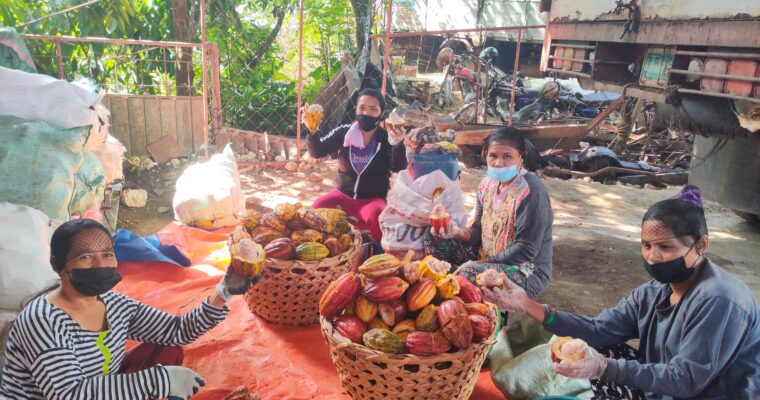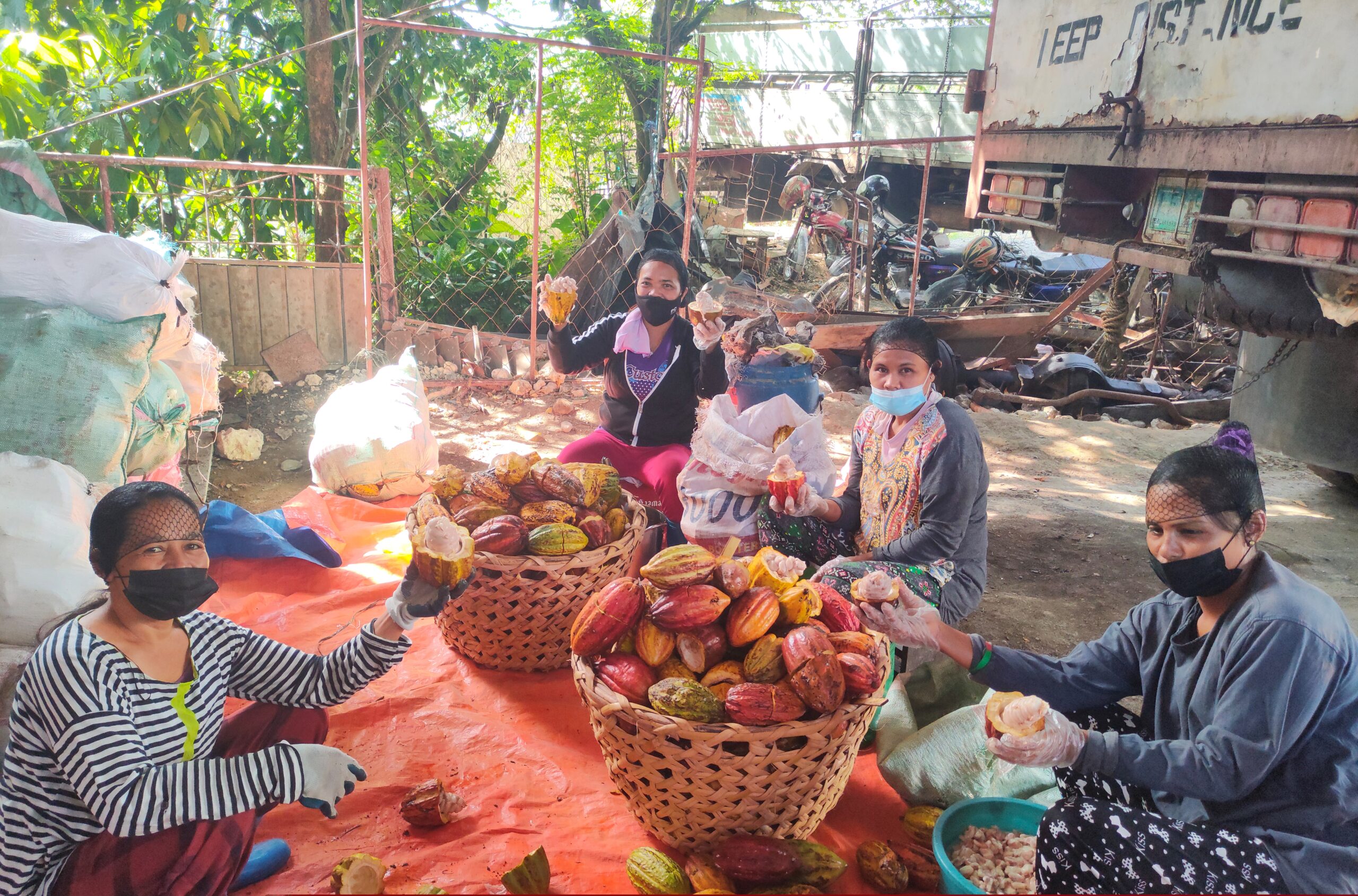Despite the challenges posed by the COVID-19 pandemic since 2020, MIEDECO, a farmers’ cooperative in the Philippines, continues to thrive. MIEDECO’s story demonstrates a successful response to the negative effects of the pandemic on the economy.
The AgriCOOPh Federation supports the Malabog Integrated Enterprises Development Cooperative (MIEDECO) through the Assuring Resiliency of Family Farmers Amidst COVID-19 or ARISE-Farmers program. ARISE-Farmers is financed by the International Fund for Agricultural Development (IFAD) and is implemented by the Asian Farmers’ Association for Sustainable Rural Development (AFA) along with its partner farmers’ organizations.
MIEDECO has been operating a farmer’s cooperative for over 35 years and has an estimated 600 members engaged in agricultural production. The majority of the members are into organic farming in areas located in the hinterland barangays (villages) of Paquibato District of Davao City. The major buyer of MIEDECO’s coconut produce is Franklin Baker Company Philippines.
During the first round of the ARISE program in March 2021, MIEDECO received a loan of USD 21,027.77 to be used as their working capital for two cycles. The loan was used to procure the whole coconut and cacao beans products of the Cooperative’s members. When big businesses in Davao City stopped buying commodities from MIEDECO due to the pandemic, the Cooperative was able to continue buying their members’ commodities with the help of the fund from ARISE-Farmers.
More than 50% of MIEDECO’s farmer-members are women involved in coconut and cacao production. The ARISE program enabled them to continue earning their livelihood despite the lockdowns caused by the COVID-19 pandemic. Their farm produce and dedicated labor did not go to waste as their Cooperative was able to buy their outputs.
During the peak season for cacao production (between November to December), MIEDECO was able to buy dried cacao beans. A total of 20,600 kilograms of dried cacao beans were procured from their farmer members from August to December 2021. These dried beans were sold to institutional buyers in Davao City.
With their good implementation, the ARISE was extended for another year. For the second cycle of ARISE, MIEDECO has once again availed of a loan amounting to Php 4,000,000.00 to be used as working capital.
With the continuous operation of the Cooperative, it was able to retain its loyal members and buyers as evident in its marketing agreement with Franklin Baker Company. Even with the pandemic challenges, the Cooperative persevered while being aware of its responsibilities in food security, cooperative mission, and response to members’ needs.
Aside from the support it received, MIEDECO’s success also lies in its good practices which include employing effective agroecology practice of clustering approach and collective procurement of quality organic whole nuts and copra-making for low-quality nuts to fetch a higher price.
According to a recent rapid assessment conducted by AgriCooPh through a MEDA RIISA Project tool, MIEDECO is one of the lead cooperatives in how it responds to its environmental, social, and governance objectives.
- Environment
- The Cooperative is actively engaged in environment-related activities such as the greening program as part of its Vision, Mission, and Goal
- The ongoing greening program of the Cooperative is currently subject to monitoring and evaluation with the engagement of the IP community
- MIEDECO is a certified fairtrade member. Fairtrade sponsored and organized a training on environmentally sustainable practices and farmers who attended this training have been certified in fairtrade farming.
- The Cooperative has drafted an environment policy but still collecting major data to incorporate into the overall policy including the DRRM-related activities, taking into consideration the different needs of or impacts on women, IPs, youth, and LGBTQ
- Intercropping coconut (shade tree) and cacao (shade-loving tree)
- Social
- MIEDECO conducted a Gender Equality/Gender and Development to its management staff and members (under GAD Module- 9262 that covers the rights of the youth and women).
- MIEDECO has a policy on gender and development and is being incorporated into the coop module.
- MIEDECO has a Code of Conduct upholding values of human rights, inclusivity, and respect for cultural diversity and gender identity – covered in the ethics committee.
- The Cooperative has a policy on the prevention of sexual exploitation, abuse, and harassment covered in the GAD module – provided by Franklin Baker Company.
- Governance
- MIEDECO has a strategic plan–with priorities on increasing membership, capital build, governance
- The Cooperative has a financial recording system and has audited FS for the past three years
- The Cooperative has participated in coop-to-coop cooperation through the AgriCooPh federation
With the continuous operation of the cooperative, the coop was able to retain its loyal members and buyer, specifically entering into a marketing agreement with Franklin Baker Company. With their good implementation, the ARISE Fund was extended to its second year.
Even with the COVID-19 Pandemic challenges, the cooperative persevered while being aware of its responsibilities to food security, cooperative mission, and response to members’ needs. It was evident through their policies and practices.
A challenge of fully implementing agroecology practices would be that it will require resources. Knowledge and capacities in agroecology can still be improved.
MIEDECO’s agroecology capacities of its financial, environmental, social, and governance can be replicated by other cooperatives. Agroecology can only be effective if there is a buy-in of the principles from the leaders, managers, and members.
For cooperatives to be more effective in their transformative role in the community, agroecology practices that are centered on their Environmental, Social, and Governance capacities should be given importance and can be part of the technical assistance.





Comments are closed